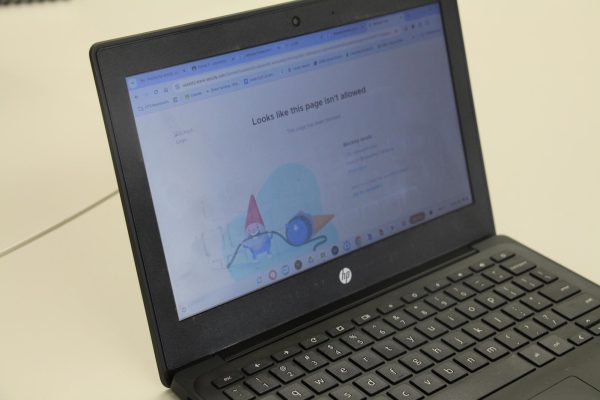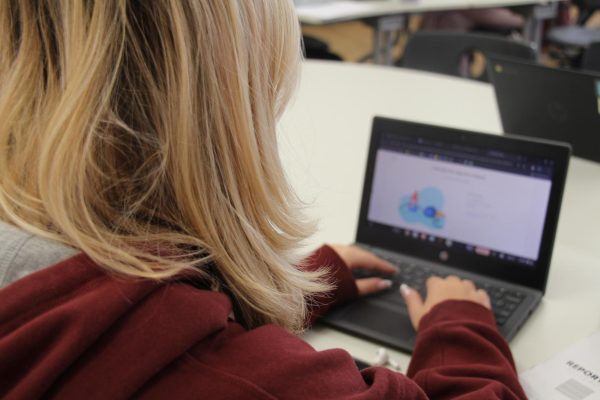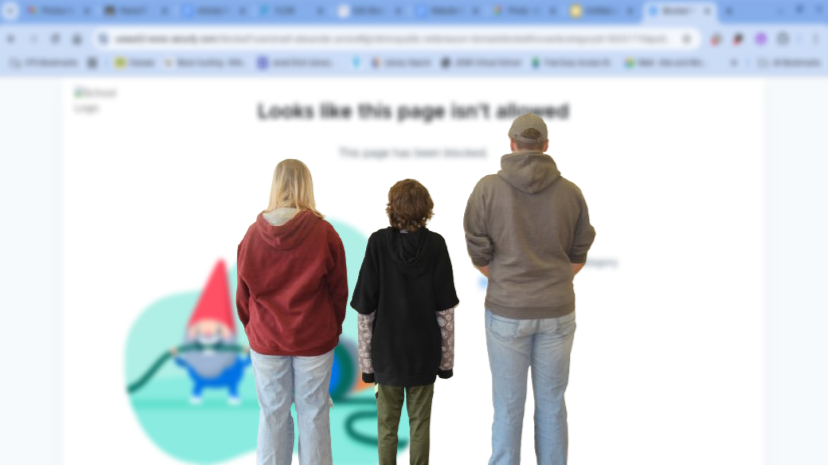Students throughout The Morgan School have experienced a plethora of issues surrounding the blocking system set by the school. From educational site restrictions, to admission boards for colleges being blocked as well. Problems like these have students upset, as their work ethic gets hindered because sites they need for research or admissions are restricted. With these complaints, the school hears loud and clear that kids want the filtering fixed, but it’s not as easy to change as students, or even the teachers may think.
The school’s blocking system mainly runs off a program known as Securely, a program which is able to filter content by scanning through the code and data within the site. Based on the structure of the code, the filtering system is able to categorize the website into certain categories such as education, gaming, and information, which will determine whether or not a site will be restricted by the program. “So for most websites when they’re built and designed, there’s information in the code that tells filtering and search engines, …what type of website and what category we are, whether it’s ‘were a game’, ‘were education based’, ‘were science based’, and it starts by looking at those categories,” Frank Rossi, the Director of Information Technology, who oversees Securely explains.
This system of filtering is mainly used to protect students from inappropriate content, such as violent imagery, though is also used, so students aren’t distracted during school hours, where without the restrictions, they can go onto a site and play games instead of doing their work, which could harm their work ethic.
“The filters are doing what they’re supposed to be doing,” Rossi explained, “When we look at the filters on a regular basis, when we look at the logs, we see a lot of stuff that is getting blocked is stuff that should be blocked such as games, random searches, and general time killers.”
Securely is able to do more than just filter though, as it’s also able to detect traffic to specific sites. So if there seems to be an influx of activity on a certain site, the program is able to notify the school about the amount of traffic to the site, along with a basis of information on what the site contains.
“We can run auto reports on a weekly basis, so the system will flag some websites saying ’hey, you might wanna take a look at this,’” Rossi Explains. “Sometimes the flag is like if you see a lot of people, like if you’re walking down the street and see a crowd going one direction, you’re like ‘hey, what’s going on down there?’”
This system is able to help the school a lot, as the filtering is able to keep students to more school appropriate sites. The filters also able to track where students are going the most, and can help the school if it needs more manual filtering on certain sites that may otherwise go undetected by the program. These filtering capabilities also extend to searches and general keywords, which can show the school what students are looking up, and can show potential influxes in search terms that can notify the school if they believe a certain search term is problematic.

While the filtering is able to keep kids from seeing harmful content, it may be too good, as it’s been blocking more and more sites that students, and even teachers, need to use for class. “I think the biggest thing we’ve dealt with is problems surrounding some of the academic journals, and academic resources,” Rossi explained, “It’s really difficult, so we’re working on strategies with teachers to try and get them a little more control on how to filter.”
One site of note among students was Blooket, an activity website similar to Kahoot in how it combined learning and games to make the teaching process more entertaining. Blookets blocking last year was a big question among the student body, and even some teachers, wondering why a site that was used by the school was just suddenly blocked.
It turns out that the block was put in place because of poor management on Blookets’ part, where students, when leaving Blookets created by the teachers, were able to find Blookets from other users that contained vulgar imagery that wasn’t suitable for the school. This made the school panic, and after seeing how other schools had the site blocked for similar reasons, shut it down as well.
This issue made students much more annoyed with the site blocks, as they felt it was unfair that a site like Blooket was banned, though most students didn’t know at the time why it was blocked, which made them more confused when it suddenly was.
Recently though, the Blooket situation was sorted with some fixes to the site which solved the issue. The same can’t be said for more recent problems, however, as it seems there’s been an influx in blocks on many kinds of sites, which is making students frustrated with the blocking system. “Anytime that I have to research for a project, it’s hard to find sources for my work,” Adam Kelly, a junior at Morgan School explains. “And whenever I have free time, I have nothing to do on the chromebooks, I can’t go onto Youtube, and I can’t play anything like Wordle because websites like that are blocked too, which is kind of annoying.”
One of the main issues for the increase in blocks that Mr. Rossi explained, is that the filters have been having more and more trouble categorizing websites into their proper categories. Since the filtering system works off the code of a site, they usually try to find patterns within code to sort them properly, but with advancements and updates to code, it’s made categorizing some websites a challenge for the filter.
“One of the things we found is more websites are coming up as uncategorized, and that’s the biggest issue. When the filter doesn’t know how to categorize a website, it doesn’t know where it fits in, they’re not smart enough yet to scan all the content of a website.”
When the system isn’t able to categorize a site, it tries fitting it into a category based on much more general info, which can be less accurate to the site’s content. This has led to some big problems, with sites students may need to use to research classwork or projects being blocked, which can hinder their research efforts and make completing work more difficult.
Another big issue with uncategorized blocks is that many sites that are used for college admissions are blocked as well, which can be a huge problem for juniors and seniors trying to seek out applications and admissions for colleges.

“I think the biggest thing that we’ve dealt with is, and this is a problem, is some of the academic journals, and academic resources like UCONN, ECE, some of those higher level sites,” Rossi explained, “so we’re working on strategies with the teachers to try and give them a little bit more control as to how to filter and how to unblock things for class.”
Since this has been such a big issue, the school has been trying to do a lot to get students to the sites they need. This is mainly done through teachers going to the tech department about blocked sites and getting them to review and unblock certain sites.
This has been the most effective as teachers are trusted members of the school and usually get sites unblocked when they ask. Another system is if students go to teachers to ask about certain site blocks, where the teacher can either explain why a site is blocked, or can forward the complaint to the school, where they will hopefully unblock the site.
One thing the school hopes for in the future is more thorough scans of sites. As of now the filter only scans through the code, but as the tech advances, it can begin to look through the site itself to see if certain content is suitable for students or not.
This advancement could help a lot with site filtering, as many sites’ coding isn’t able to be detected by the filter, so when the filter is able to scan through the site, it can make the blocking process a lot simpler for everyone in the school.
“I think a lot of people think that the filters scan all the content of the website.” Rossi explained, “and they’re not that powerful, though I think that’s coming. I think the next wave of AI, when the filters are gonna learn, they’re gonna learn more and more about the websites being created.”


